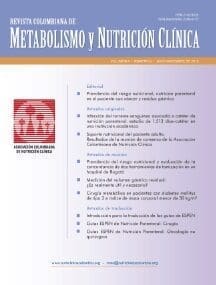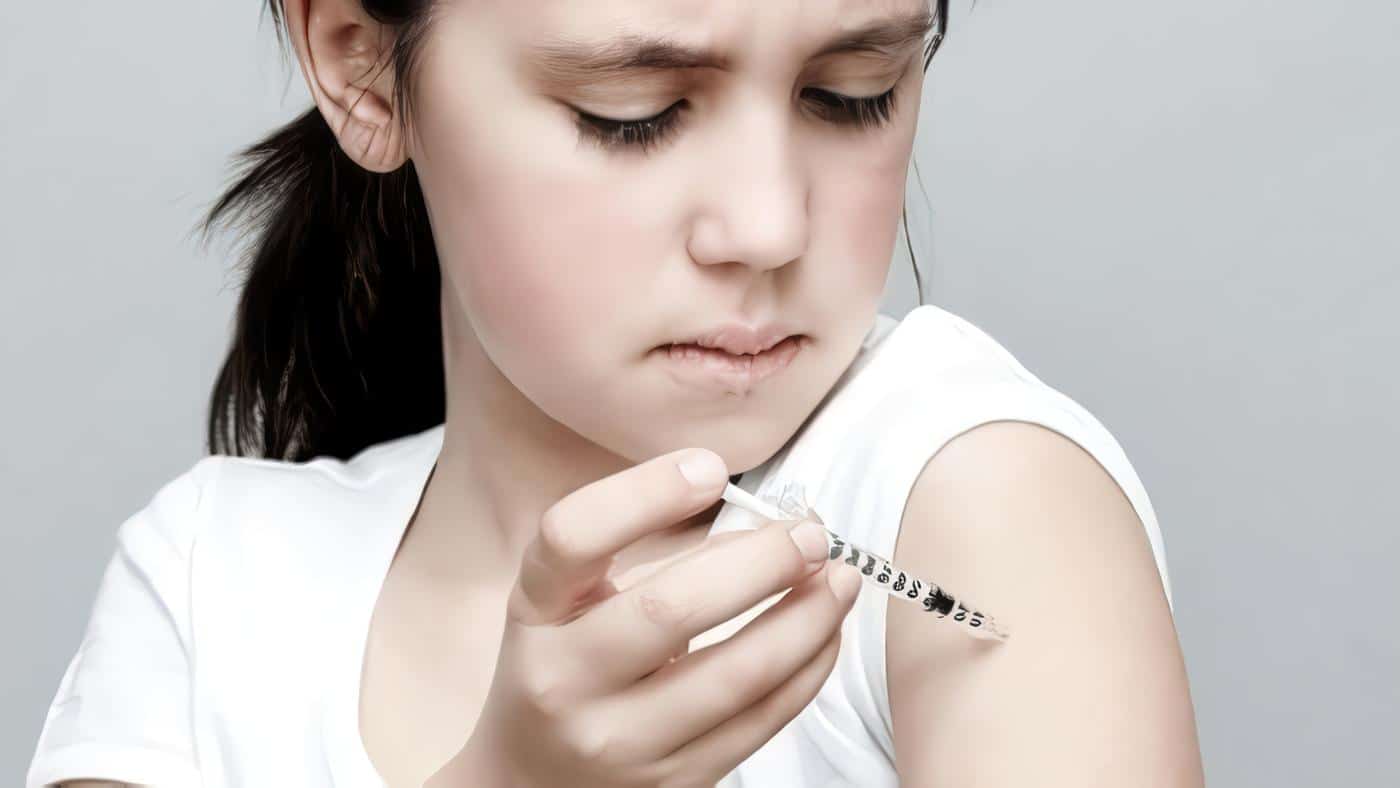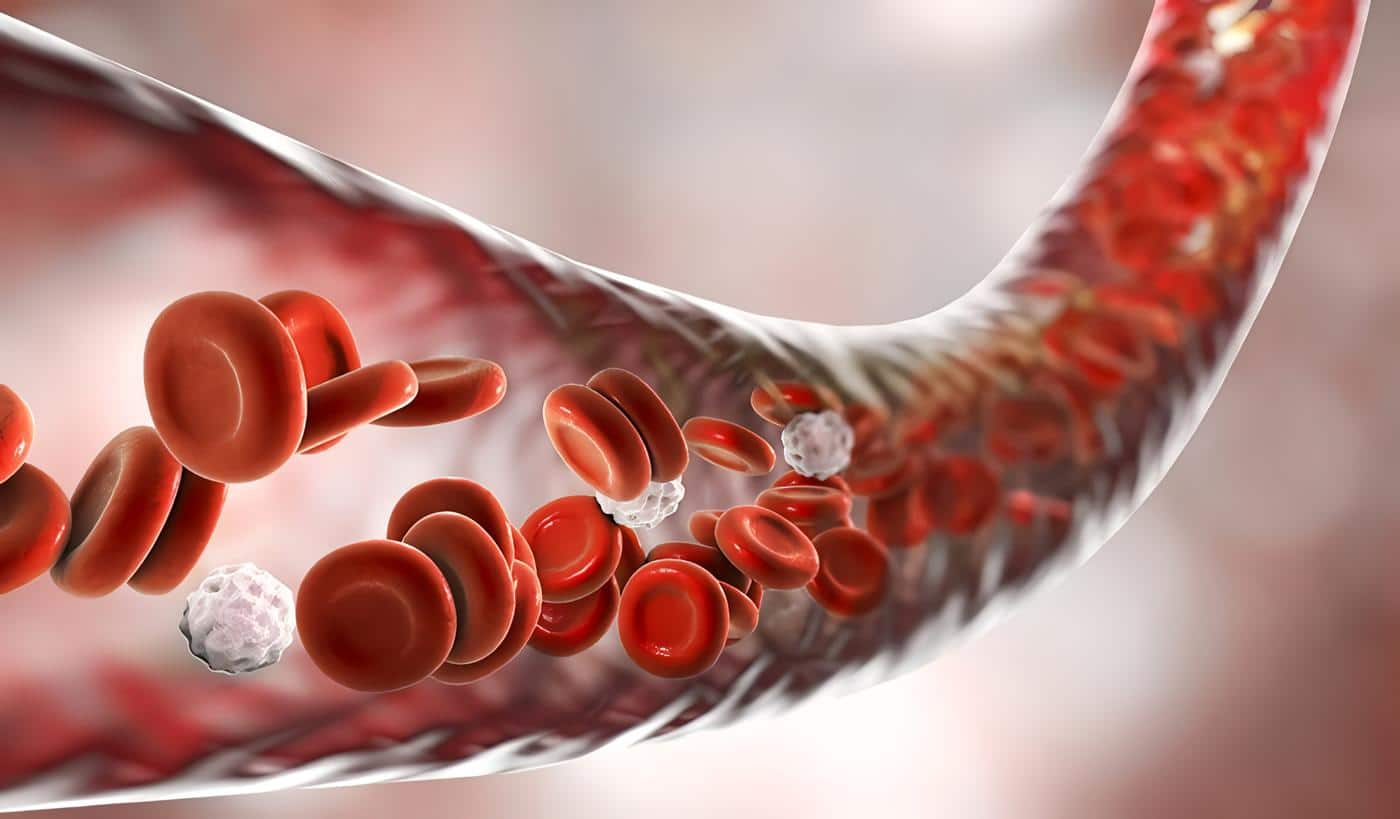4.1 ¿Puede la NP “alimentar” al tumor?
Probablemente sí.
Aunque la NP suministra nutrientes al tumor, no hay evidencia de que ello tenga efectos nocivos sobre los resultados del tratamiento.
Por esto, esta consideración no debe influir sobre la decisión de alimentar a un paciente con cáncer cuando está indicada la NP (Grado C).
Comentarios:
La mayoría de los estudios que investigan la relación entre NP y crecimiento tumoral se han efectuado en modelos animales con tumor.
Por lo mismo, hay diversas razones para no trasladar los resultados de NP en tumores experimentales al terreno de los seres humanos. La relación proporcional entre el tamaño del tumor y el tamaño del organismo afectado es de 10 a 20% en los tumores experimentales, pero en los seres humanos muy raramente sube del 1%.
Generalmente, los animales con tumor reciben alimentación durante 1 a 2 semanas, por lo que el período de nutrición artificial cubre cerca de las dos terceras partes de la historia natural de su enfermedad.
La citocinética de los tumores experimentales generalmente es muy diferente de lo que se observa en tumores humanos y más rápida.
Una revisión de la literatura en las bases PubMed y EMBASE permitió identificar doce trabajos adecuados( 155-166) que abarcan un total de 140 pacientes que recibieron soporte nutricional y 84 controles.
Los estudios se clasificaron como ensayos clínicos aleatorizados en cinco casos, ensayos comparativos clínicos no aleatorizados en tres ocasiones y ensayos con pacientes que eran sus propios controles en 4 casos.
Los diversos indicadores de aumento en la producción de células tumorales que se usaron en los estudios incluyen el índice de ADN, la actividad de la ornitina decarboxilasa, la distribución de ADN en citometría de flujo y el índice de marcación con timidina tritiada o bromodeoxiuridina.
No se observó aumento en la producción de células tumorales en los pacientes de control que recibieron la dieta usual, pero sí, en siete de los 12 estudios en los pacientes que recibían soporte nutricional.
Sin embargo, no hay datos suficientes en la literatura para aclarar si esa promoción del metabolismo tumoral fue desproporcionadamente alta en comparación con el estímulo sobre las otras células corporales; tampoco se informaron efectos clínicos perjudiciales de la NP sobre el crecimiento tumoral cuando el soporte nutricional se les dio a pacientes que estaban afágicos y desnutridos.
En conclusión, el temor de un crecimiento desproporcionado y excesivo del tumor(167) no debe permitir que se les niegue soporte nutricional adecuado a pacientes con cáncer si dicho soporte tiene indicaciones clínicas.
Conflicto de intereses
Los conflictos de intereses se hallan debidamente registrados en los archivos de ESPEN (espenjournals@ espen.org).
Referencias
- 1. Moldawer LL, Copeland EM. Proinflammatory cytokines, nutritional support, and the cachexia syndrome. Cancer 1997;79:1828–39.
- 2. de Blaauw I, Deutz NEP, von Meyenfeldt MF. Metabolic changes of cancer cachexiadsecond of two parts. Clin Nutr 1997;16:223–8.
- 3. de Blaauw I, Deutz NEP, von Meyenfeldt MF. Metabolic changes in cancer cachexiadfirst of two parts. Clin Nutr 1997;16:169–76.
- 4. Barber MD. The pathophysiology and treatment of cancer cachexia. Nutr Clin Pract 2002;(17):203–9.
- 5. Tisdale MJ. Protein loss in cancer cachexia. Science 2000;289:2293.
- 6. Tisdale MJ. Cachexia in cancer patients. Nat Rev Cancer 2002;2(11):862–1.
- 7. Inui A. Cancer anorexia-cachexia syndrome: are neuropeptides the key? Cancer Res 1999;59:4493–501.
- 8. von Meyenfeldt MF. Nutritional support during treatment of biliopancreatic malignancy. Ann Oncol 1999;10(Suppl. 4):273–7.
- 9. Fearon KCH, Barber MD, Falconer JS, McMillan DC, Ross JA, Preston T. Pancreatic cancer as a model: inflammatory mediators, acute-phase response, and cancer cachexia. World J Surg 1999;23:584–8.
- 10. Fordy C, Glover C, Henderson DC, Summerbell C, Wharton R, Allen-Mersh TG. Contribution of diet, tumour volume and patient-related factors to weight loss in patients with colorectal liver metastases. Br J Surg; 1999::639–44.
- 11. Simons JPFHA, Schols AM, Buurman WA, Wouters EF. Weight loss and low body cell mass in males with lung cancer: relationship with systemic inflammation, acute-phase response, resting energy expenditure, and catabolic and anabolic hormones. Clin Sci 1999;97:215–23.
- 12. Balkwill F, Mantovani A. Inflammation and cancer: back to Virchow? Lancet 2001;357(9255):539–45.
- 13. Coussens LM, Werb Z. Inflammation and cancer. Nature 2002;420(6917):860–7.
- 14. Espat NJ, Moldawer LL, Copeland EM. Cytokine-mediated alterations in host metabolism prevent nutritional repletion in cachectic cancer patients. J Surg Oncol 1995;58:77–82.
- 15. Martin F, Santolaria F, Batista N, et al. Cytokine levels (IL-6 and IFN- gamma), acute phase response and nutritional status as prognostic factors in lung cancer. Cytokine 1999;11(1):80–6.
- 16. O’Gorman P, McMillan DC, McArdle CS. Prognostic factors in advanced gastrointestinal cancer patients with weight loss. Nutr Cancer 2000;37(1):36–40.
- 17. Jamieson NB, Glen P, McMillan DC, et al. Systemic inflammatory response predicts outcome in patients undergoing resection for ductal adenocarcinoma head of pancreas. Br J Cancer 2004;92:21–3.
- 18. Lundholm K, Holm G, Schersten T. Insulin resistance in patients with cancer. Cancer Res 1978;38(12):4665–70.
- 19. Starnes HF, Warren RS, Brennan MF. Protein synthesis in hepatocytes isolated from patients with gastrointestinal malignancy. J Clin Invest 2002;80:1384–90.
- 20. Shaw JHF, Wolfe RR. Fatty acid and glycerol kinetics in septic patients and in patients with gastrointestinal cancer. Ann Surg 1997;205:368–76.
- 21. Zuijdgeest-van Leeuwen SD, van den Berg JW, Wattimena JLD, et al. Lipolysis and lipid oxidation in weight-losing cancer patients and healthy subjects. Metabolism 2000;49(7):931–6.
- 22. Korber J, Pricelius S, Heidrich M, Mu¨ ller MJ. Increased lipid utilization in weight losing and weight stable cancer patients with normal body weight. Eur J Clin Nutr 1999;53:740–5.
- 23. Barber MD, McMillan DC, Preston T, Ross JA, Fearon KCH. Metabolic response to feeding in weight-losing pancreatic cancer patients and its modulation by a fish-oil-enriched nutritional supllement. Clin Sci 2000;98(4):389–99.
- 24. Legaspi A, Jeevanandam M, Starnes Jr HF, Brennan MF. Whole body lipid and energy metabolism in the cancer patient. Metabolism 1987;36(10):958– 63.
- 25. Cabal-Manzano R, Bhargava P, Torres-Duarte A, Marshall J, Bhargava P, Wainer IW. Proteolysis-inducing factor is expressed in tumours of patients with gastrointestinal cancers and correlates with weight loss. Br J Cancer 2001;84(12):1599–601.
- 26. Jeevanandam M, Horowitz GD, Lowry SF, Brennan MF. Cancer cachexia and protein metabolism. Lancet 1984;1:1424–6.
- 27. Williams A, Sun X, Fischer JF, Hasselgren PO. The expression of genes in the ubiquitin-proteasome proteolytic pathway is increased in skeletal muscle from patients with cancer. Surgery 1999;126:744–50.
- 28. Bossola M, Muscaritoli M, Costelli P, et al. Increased muscle ubiquitin mRNA levels in gastric cancer patients. Am J Physiol Regulatory Integrative Comp Phsyiol 2001;280:R1518–23.
- 29. Muscaritoli M, Bossola M, Bellantone R, Rossi Fanelli F. Therapy of muscle wasting in cancer: what is the future? Curr Opin Clin Nutr Metab Care 2004;7(4):459–66.
- 30. Lundholm K, Daneryd P, Bosaeus I, et al. Palliative nutritional intervention in addition to cyclooxygenase and erythropoietin treatment for patients with malignant disease: effects on survival, metabolism and function. Cancer 2004;100:1967–77.
- 31. DeWys WD, Begg C, Lavin PT, et al. Prognostic effect of weight loss prior to chemotherapy in cancer patients. Am J Med 1980;69:491–7.
- 32. Chute CG, Greenberg ER, Baron J, Korson R, Baker J, Yates J. Presenting conditions of 1539 population-based lung cancer patients by cell type and stage in New Hampshire and Vermont. Cancer 1985;56:2107–11.
- 33. Wigmore SJ, Plester CE, Richardson RA, Fearon KCH. Changes in nutritional status associated with unresectable pancreatic cancer. Br J Cancer 1997;75(1):106–9.
- 34. Andreyev HJN, Norman AR, Oates J, Cunningham D. Why do patients with weight loss have a worse outcome when undergoing chemotherapy for gastrointestinal malignancies? Eur J Cancer 1998;34(4):503–9.
- 35. Bozzetti F, Migliavacca S, Scotti A, et al. Impact of cancer, type, site, stage and treatment on the nutritional status of patients. Ann Surg 1982;196(2):170–9.
- 36. Costa G, Donaldson SS. Current concepts in cancer. N Engl J Med 1979;300(26):1471–3.
- 37. McAnena OJ, Daly JM. Impact of antitumor therapy on nutrition. Surg Clin North Am 1986;66(6):1213–28.
- 38. Aviles A, Yanez J, Garcia EL, et al. Malnutrition as an adverse prognostic factor in patients with diffuse large cell lymphoma. Arch Med Res 1995;26:31–4.
- 39. Stanley K. Prognostic factors for survival in patients with inoperable lung cancer. JNCI 1980;65:25–32.
- 40. Pedersen H, Hansen HS, Cederqvist C, Lober J. The prognostic significance of weight loss and its integration in stage-grouping of oesophageal cancer. Acta Chir Scand 1982;148:363–6.
- 41. Fein R, Kelsen DP, Geller N, et al. Adenocarcinoma of the esophagus and gastroesophageal junction. Prognostic factors and results of therapy. Cancer 1985;15:2512–8.
- 42. Edington J, Winter PD, Cole SJ, et al. Outcomes of undernutrition in the community with cancer or cardiovascular disease. Proc Nutr Soc 1999;58:655–61.
- 43. Van Bokorst-de van der Schueren MAE, van Leeuwen PAM, Kuik DJ, et al. The impact of nutritional status on the prognosis of patients with advanced head and neck cancer. Cancer 1999;86:519–27.
- 44. Bosaeus I, Daneryd P, Lundholm K. Dietary intake, resting energy expenditure, weight loss and survival in cancer patients. J Nutr 2002;132(11 Suppl): 3465S–6S.
- 45. Mitry E, Douillard JY, Van Cutsem E, et al. Predictive factors of survival in patients with advanced colorectal cancer: an individual data analysis of 602 patients included in irinotecan phase III trials. Ann Oncol 2004;15:1013–7.
- 46. Ross PJ, Ashley S, Priest K, et al. Do patients with weight loss have a worse outcome when undergoing chemotherapy for lung cancers? Br J Cancer 2004;90:1905–11.
- 47. Kadar L, Albertson M, Areberg J, et al. The prognostic value of body protein in patients with lung cancer. Ann NY Acad Sci 2000;904:584–91.
- 48. van Eys J. Effect of nutritional status on response to therapy. Cancer Res 1982;42(Suppl.):747–53.
- 49. Tubiana M, Attie´ E, Flamant R, Ge´ rard-Marchant R, Hayat M. Prognostic factors in 454 cases of Hodgkin’s disease. Cancer Res 1971;31:1801–10.
- 50. Swenerton KD, Legha SS, Smith T, et al. Prognostic factors in metastatic breast cancer treated with combination chemotherapy. Cancer Res 1979;39:1552–62.
- 51. Correia MI, Waitzberg DL. The impact of malnutrition on morbidity, mortality, length of hospital stay and costs evaluated through a multivariate model analysis. Clin Nutr 2003;22:235–9.
- 52. Sarna L, Lindsey AM, Dean H, et al. Weight change and lung cancer: relationship with symptom distress, functional status, and smoking. Res Nurs Health 1994;17:371–9.
- 53. Ollenschlager G, Thomas W, Konkol K, Diehl V, Roth E. Nutritional behavior and quality of life during oncological polychemotherapy: results of a prospective study on the efficacy of oral nutrition therapy in patients with acute leukaemia. Eur J Clin Invest 1992;22(8):5–23.
- 54. Aslani A, Smith RC, Allen BJ, Paviakis N, Levi JA. The predictive value of body protein for chemotherapy-induced toxicity. Cancer 2000;88:796–803.
- 55. Klastersky J, Daneau D, Verhest A. Causes of death in patients with cancer. Eur J Cancer 1972;8(2):149–54.
- 56. Inagaki J, Rodriguez V, Bodey GP. Proceedings: Causes of death in cancer patients. Cancer 1974;33(2):568–73.
- 57. Ambrus JL, Ambrus CM, Mink IB, Pickren JW. Causes of death in cancer patients. J Med 1975;6(1):61–4.
- 58. Warren S. The immediate causes of death in cancer. Am J Med Sci 1932;184:610–5.
- 59. Knox LS, Crosby LO, Feurer ID, Buzby GP, Miller CL, Mullen JL. Energy expenditure in malnourished cancer patients. Ann Surg 1983;197(2):152–61.
- 60. Dempsey DT, Feurer ID, Knox LS, Crosby LO, Buzby GP, Mullen JL. Energy expenditure in malnourished gastrointestinal cancer patients. Cancer 1984;53:1265–73.
- 61. Bosaeus I, Daneryd P, Svanberg E, Lundholm K. Dietary intake, resting energy expenditure in relation to weight loss in unselected cancer patients. Int J Cancer 2001;93:380–3.
- 62. Hansell DT, Davies JW, Burns HJ. Effects of hepatic metastases on resting energy expenditure in patients with colorectal cancer. Br J Surg 1986;73(8):659–62.
- 63. Fredrix EW, Soeters PB, Wouters EF, Deerenberg IM, von Meyenfeldt MF, Saris WH. Effect of different tumor types on resting energy expenditure. Cancer Res 1991;51:6138–41.
- 64. Moses AW, Slater C, Preston T, Barber MD, Fearon KC. Reduced total energy expenditure and physical activity in cachectic patients with pancreatic cancer can be modulated by an energy and protein dense oral supplement enriched with n-3 fatty acids. Br J Cancer 2004;90(5):996–1002.
- 65. Gibney E, Elia M, Jebb SA, Murgatroyd P, Jennings G. Total energy expenditure in patients with small-cell lung cancer: results of a validated study using the bicarbonate-urea method. Metabolism 1997;46(12):1412–7.
- 66. Staal-van den Brekel AJ, Dentener MA, Schols AM, Burman WA, Wouters EF. Increased resting energy expenditure and weight loss are related to a systemic inflammatory response in lung cancer patients. J Clin Oncol 1995;13(10): 2600–5.
- 67. Cereda E, Turrini M, Ciapanna D, et al. Assessing energy expenditure in cancer patients: a pilot validation of a new wearable device. J Parenter Enteral Nutr 2007;31:502–7.
- 68. Bencini L, Di Leo A, Pozzessere D, Bozzetti F. Total energy expenditure in patients with advanced solid tumours: a preliminary report. Nutr Ther Metab 2008;26:45–7.
- 69. Waterhouse C, Kemperman JH. Carbohydrate metabolism in subjects with cancer. Cancer Res 1971;31:1273–8.
- 70. Legaspi A, Jeevenandam M, Fletcher Starnes Jr H, Brennan MF. Whole lipid and energy metabolism in the cancer patient. Metabolism 1987;36:958–63.
- 71. Selberg O, McMillan DC, Preston T, Carse H, Shenkin A, Burns HJ. Palmitate turnover and its response to glucose infusion in weight-losing cancer patients. Clin Nutr 1990;9:150–6.
- 73. Arbeit MA, Lees DA, Corsey R, Brennan MF. Resting energy expenditure in controls and cancer patients with localized and diffuse disease. Ann Surg 1984;199:292–8.
- 74. Lindmark L, Eden E, Ternell M, Bennegard K, Svaninger G, Lundholm K. Thermic effect and substrate oxidation in response to intravenous nutrition in cancer patients who lose weight. Ann Surg 1986;204:628–36.
- 75. Hansell DT, Davies JWL, Burns HJG, Shenkin A. The oxidation of body fuel stores in cancer patients. Ann Surg 1986;204:638–42.
- 77. Carpentier YA, Siderova V, Bruyns J, Rubin M. Long-term TPN and liver dysfunction. Clin Nutr 1989;8(Special Suppl):31.
- 78. Simoens CM, Deckelbaum RJ, Massaut JJ, Carpentier YA. Inclusion of 10% fish oil in mixed medium-chain triacylglycerol- long-chain triacylglycerol emulsions increases plasma triacylglycerol clearance and induces rapid eicosapentaenoic acid (20:5n-3) incorporation into blood cell phospholipids. Am J Clin Nutr 2008;88:282–8.
- 79. Shaw JH, Holdaway CM. Protein-sparing effect of substrate infusion in surgical patients is governed by the clinical state, and not by the individual substrate infused. J Parenter Enteral Nutr 1988;12:433–40.
- 80. Fan ST, Lau WY, Wong KK, Chan PM. Preoperative parenteral nutrition in esophageal cancer: a prospective randomized clinical trial. Clin Nutr 1988;8:23–7.
- 81. Bozzetti F, Ammatuna M, Migliavacca S, Facchetti G, Cozzaglio L, Morabito A. Comparison of glucose versus fat solutions in cancer patients: a controlled cross-over study. Clin Nutr 1990;9:325–30.
- 82. Gray GE, Meguid MM. Can total parenteral nutrition reverse hypoalbuminemia in oncology paients? Nutrition 1990;6:225–8.
- 83. Ferrannini E, De Fronzo RA. Renal handling of insulin in man. Contrib Nephrol 1984;43:49–53.
- 84. Muscaritoli M, Conversano L, Torelli GF, et al. Clinical and metabolic effects of different parenteral nutrition regimens in patients undergoing allogeneic bone marrow transplantation. Transplantation 1998;66(5):610–6.
- 85. Klein S, Miles JS. Metabolic effects of long.chain triglycerides and medium-chain triglycerides emulsions in humans. J Parenter Enteral Nutr 1994;18:396–7.
- 86. Nitenberg G, Raynard B. Nutritional Support of the cancer patient: issues and dilemmas. Crit Rev Oncol Hematol 2000;34(3):137–68.
- 87. Barrera R. Nutritional support in cancer patients. J Parenter Enteral Nutr 2002;26(Suppl. 5):563–71.
- 88. Baracos VE. Meeting the amino acid requirements for protein anabolism in cancer cachexia. In: Mantovani G, editor. Cachexia and wasting. A modern approach. Milan: Springer; 2006. p. 631–4.
- 89. Koretz RL, Lipman TO, Klein S. AGA technical review on parenteral nutrition. Gastroenterology 2001;121(4):970–1001.
- 90. Loiudice TA, Lang JA. Treatment of radiation enteritis: a comparison study. Am J Gastroenterol 1983;8:481–7.
- 91. Scolapio JS, Fleming CR, Kelly DG, Wick DM, Zinsmeister DC. Survival of home parenteral nutrition-treated patients: 20 years of experience at the Mayo Clinic. Mayo Clin Proc 1999;74:217–22.
- 92. Bozzetti F. Home parenteral nutrition in radiation enteropathy.In: Bozzetti F, Staun M, Van Gossum A, editors. Home parenteral nutrition. CAB International Publ; 2006. p. 95–102.
- 93. Lim STK, Choa RG, Lan KH, Ong GB. Total parenteral nutrition versus gastrostomy in the preoperative preparation of patients with carcinoma of the oesophagus. Br J Surg 1981;68:69–72.
- 94. Pearlstone DB, Lee J, Alexander RH, et al. Effect of enteral and parenteral nutrition on amino acid levels in cancer patients. J Parenter Enteral Nutr 1995;19:204–8.
- 95. Burt ME, Stein TP, Brennan MF. A controlled, randomized trial evaluating the effects of enteral and parenteral nutrition on protein metabolism in cancerbearingman. J Surg Res 1983;34:303–14.
- 96. Nixon DW, Lawson DH, Kutner M, et al. Hyperalimentation of the cancer patient with protein-calorie undernutrition. Cancer Res 1981;41:2038–45.
- 97. Jeevanandam M, Horowitz GD, Lowry SF, et al. Cancer cachexia: effect of total parenteral nutrition on whole body protein kinetics in man. J Parenter Enteral Nutr 1985;9:108.
- 98. Bozzetti F, Cozzaglio L, Biganzoli E, et al. Quality of life and length of survival in advanced cancer patients on home parenteral nutrition. Clin Nutr 2002;21:281–8.
- 99. Howard L. Home parenteral and enteral nutrition in cancer patients. Cancer 1993;72(Suppl. 11). 353–341.
- 100. Howard L, Ament M, Fleming CR, et al. Current use and clinical outcome of home parenteral and enteral nutrition therapies in the United States. Gastroenterology 1995;109:335–65.
- 101. Messing B, Barnoud D, Beau P, et al. Donne es epidemiologiques 1993-1995 de la nutrition parenterale a domicile en centres agre´e´ s chez l’adulte en France. Gastroenterol Clin Biol 1998;22:413–8.
- 102. Van Gossum A, Bakker H, Bozzetti F, et al. Home parenteral nutrition in adults: a European multicentre survey in 1997. Clin Nutr 1999;18:135–40.
- 103. Howard L. A global perspective of home parenteral and enteral nutrition. Nutrition 2000;16:625–8.
- 104. Lundholm K, Korner U, Gunnebo L, Sixt-Ammilon P, Fouladiun M, Daneryd P, Bosaeus I. Insulin treatment in cancer cachexia: effects on survival, metabolism and physical functioning. Clin Res Cancer 2007;13:2699–706.
- 105. Dewey A, Baughan C, Dean T, Higgins B, Johnson I. Eicosapentaenoic acid (EPA, an omega-3 fatty acid from fish oils) for the treatment of cancer cachexia. Cochrane Database of Systematic Reviews 2007:CD004597.
- 106. Heller AR, Fischer S, Rossel T, et al. Impact of n-3 fatty acid supplemented parenteral nutrition on haemostasis patterns after major abdominal surgery. Br J Nutr 2002;87(Suppl. 1):S595–601.
- 107. Tsekos E, Reuter C, Stehle P, Boeden G. Perioperative administration of parenteral fish oil supplements in a routine clinical setting improves patient outcome after major abdominal surgery. Clin Nutr 2004;23:325–30.
- 108. Senkal M, Geier B, Hannemann M, et al. Supplementation with omega-3 fatty acids in parenteral nutrition beneficially alters phospholipid fatty acid pattern. J Parenter Enteral Nutr 2007;31:12–7.
- 109. Heller AR, Rossel T, Gottlschiljch B, et al. Omega-3 fatty acids improve liver and pancreas function in postoperative cancer patients. Br J Cancer 2004;111:611–6.
- 110. Takagi K, Yamamori H, Furukawa K, et al. Perioperative supplementation of EPA reduces immunosuppression induced by postoperative chemoradiation therapy in patients with esophageal cancer. Nutrition 2001;17:478–9.
- 111. Wichmann MW, Thul P, Czarnetzki HD, et al. Evaluation of a fish oil containing lipid emulsion (Lipoplus MLF541): data from a prospective, randomized, multicenter trial. Crit Care Med 2007;35:700–6.
- 112. Bozzetti F, Braga M, Gianotti L, et al. Postoperative enteral versus parenteral nutrition in malnourished patients with gastrointestinal cancer: a randomized multicenter trial. Lancet 2001;358:1487–92.
- 113. Braga M, Gianotti L, Nespoli L, et al. Nutritional approach in malnourished surgical patients: a prospective randomized study. Arch Surg 2002;137: 174–80.
- 114. Meguid MM, Curtas M, Meguid V, et al. Effects of preoperative TPN on surgical risk- preliminary report. Br J Clin Pract 1988;42(Suppl. 63):53–8.
- 115. Bozzetti F, Gavazzi C, Miceli R, et al. Perioperative parenteral nutrition in malnourished gastrointestinal cancer patients. A randomised clinical trial. J Parenter Enteral Nutr 2000;24:7–14.
- 116. Von Meyenfeldt MF, Meijerink WJHJ, Rouflart MMJ, Buil- Maassen MTHJ, Soeters PB. Perioperative nutritional support: a randomized clinical trial. Clin Nutr 1992;11:180–6.
- 118. Freedman B. Equipose and the ethics of clinical research. NEJM 1987;317:141–5.
- 119. Solassol C, Joyeux H, Dubois JB. Total Parenteral Nutrition (TPN) with complete nutritive mixtures: an artificial gut in cancer patients. Nutr Cancer 1979;1: 13–8.
- 120. Solassol C, Joyeux H. Artificial gut with complete nutritive mixtures as a major adjuvant therapy in cancer patients. Acta Chir Scand 1979;494:186–8.
- 121. Mercadante S, Casaccio A, Mangione S. Medical treatment for inoperable malignant bowel obstruction: a qualitative systematic review. J Pain Symptom Manage 2007;33:217–23.
- 122. Bozzetti F. HPN in Cancer. In: Bozzetti F, Staun M, Van Gossum A, editors. Home parenteral nutrition. CAB International Publ; 2006.
- 123. King LA, Carson LF, Konstantinides RN, et al. Outcome assessment of home parenteral nutrition in patients with gynaecological malignancies: what have we learned in a decade of experience? Gynaecol Oncol 1993;51:377–82.
- 124. Cozzaglio L, Balzola F, Cosentino F, et al. Outcome of cancer patients receiving home parenteral nutrition. J Parenter Enteral Nutr 1997;21:339–42.
- 126. Pironi L, Ruggeri E, Tanneberger S, Giordani S, Pannuti F, Miglioli M. Home artificial nutrition in advanced cancer. J R Soc Med 1997;90:597–603.
- 127. Duerksen DR, Ting E, Thomson P, et al. Is there a role for TPN in terminally ill patients with bowel obstruction? Nutrition 2004;20:760–3.
- 128. Moreno Villares JM, Gomis Munoz P, Valero Zanuy MA, Leon Sanz M. Home parenteral nutrition in patients with advanced cancer: experience of a single centre over ten years. Nutr Hosp 2004;19:253–8.
- 129. Hoda D, Jatoi A, Burnes J, Loprinzi C, Kelly D. Should patients with advanced, incurable cancers ever be sent home with total parenteral nutrition? A single institution’s 20-year experience. Cancer 2005;103:863–8.
- 130. McKinlay AW. Nutrition support in patients with advanced cancer: permission to fall out? Proc Nutr Soc 2004;63:431–5.
- 131. Winkler MF. Quality of life in adult home parenteral nutrition patients. J Parenter Enteral Nutr 2005;29:162–70.
- 132. Micklewright A, Baxter J, Wheatley C. Quality of life during HPN. In: Bozzetti F, Staun M, Van Gossum A, editors. Home parenteral nutrition. CAB International Publ; 2006.
- 133. Orreval Y, Tishelman C, Herrington MK, et al. The path from oral nutrition to home parenteral nutrition; a qualitative interview study of the experiences of advanced cancer patients and their families. Clin Nutr 2004;23:1280–7.
- 134. Orreval Y, Tishelman C, Permert J. Home parenteral nutrition: a qualitative interview study of the experiences of advanced cancer patients and their families. Clin Nutr 2005;24:961–70.
- 135. Shang E, Weiss C, Post S, Kaehler G. The influence of early supplementation of parenteral nutition on quality of life and body composition in patients with advanced cancer. J Parenter Enteral Nutr 2006;30:222–30.
- 136. Finocchiaro E, Rahimi F, Agnello E, et al. Home parenteral nutition in advanced cancer patients: a four-year multicenter prospective observational study. Nutr Ther Metab 2007;25:31–9.
- 137. Seguy D, Berthon C, Micol JB, et al. Enteral feeding and early outcomes of patients undergoing allogeneic stem cell transplantation following myeloablative conditioning. Transplantation 2006;82(6):835–9.
- 138. Sefcick A, Anderton D, Byrne JL, Teahon K, Russell NH. Naso-jejunal feeding in allogeneic bone marrow transplant recipients: results of a pilot study. Bone Marrow Transplant 2001;28(12):1135–9.
- 139. Keefe DM, Rassias G, O’Neil L, Gibson RJ. Severe mucositis: how can nutrition help? Curr Opin Clin Nutr Metab Care 2007;10(5):627–31.
- 140. Iestra JA, Fibbe WE, Zwinderman AH, Romijn JA, Kromhout D. Parenteral nutrition following intensive cytotoxic therapy: an exploratory study on the need for parenteral nutrition after various treatment approaches for haematological malignancies. Bone Marrow Transplant 1999;23(9):933–9.
- 141. Muscaritoli M, Grieco G, Capria S, Iori AP, Rossi Fanelli F. Nutritional and metabolic support in patients undergoing bone marrow transplantation. Am J Clin Nutr 2002;75(2):183–90.
- 142. Murray SM, Pindoria S. Nutrition support for bone marrow transplant patients. Cochrane Database Syst Rev 2008;4:CD002920.
- 143. Weisdorf SA, Lysne J, Wind D, et al. Positive effect of prophylactic total parenteral nutrition on long-term outcome of bone marrow transplantation. Transplantation 1987;43(6):833–8.
- 144. Mesejo Arizmendi A, Ordóñez González J, Ortiz Leyba C. Nutrición artificial en el trasplante de células precursoras hematopoyéticas. Nutr Hosp 2005;2:54–6.
- 145. Raynard B, Nitenberg G, Gory-Delabaere G, et al. FNCLCC. Summary of the Standards, Options and Recommendations for nutritional support in patients undergoing bone marrow transplantation (2002). Br J Cancer 2003; 89(Suppl. 1):S101–6.
- 147. Brown SA, Goringe A, Fegan C, et al. Parenteral glutamine protects hepatic function during bone marrow transplantation. Bone Marrow Transplant 1998; 22:281–4.
- 148. Goringe AP, Brown S, Callaghan U, et al. Glutamine and vitamin E in the treatment of hepatic veno-occlusive disease following high-dose chemotherapy. Bone Marrow Transplant 1998;22:2879–84.
- 149. Wilmore DW, Schloerb PR, Ziegler TR. Glutamine in the support of patients following bone marrow transplantation. Curr Opin Clin Nutr Metab Care 1999;2:323–7.
- 150. Ziegler TR. Glutamine supplementation in cancer patients receiving bone marrow transplantation and high dose chemotherapy. J Nutr 2001;131(9): 2578S–84S.
- 151. da Gama Torres HO, Vilela EG, da Cunha AS, et al. Efficacy of glutaminesupplemented parenteral nutrition on shortterm survival following allo-SCT: a randomized study. Bone Marrow Transplant 2008;41(12):1021–7.
- 152. Pytlık R, Benes P, Patorkova M, et al. Standardized parenteral alanyl-glutamine dipeptide supplementation is not beneficial in autologous transplant patients: a randomized, doubleblind, placebo controlled study. Bone Marrow Transplant 2002;30(12):953–61.
- 153. Mercadal Orfila G, Llop Talaverón JM, Gracia García B, et al. Utilización de Glutamina en nutrición parenteral tota en elpaciente crítico: efectos sobre la morbi-motalidad. Nutr Hosp 2007;22:61–7.
- 154. Gómez Candela C, Castillo R, de Cos AI, et al. Efectos de la glutamina parenteral en pacientes sometidos a trasplante de médula ósea. Nutr Hosp 2006;21:13–21.
- 155. Dionigi P, Jemos V, Cebrelli T, et al. Pre-operative nutritional support and tumour cell kinetics in malnourished patients with gastric cancer. Clin Nutr 1991;19(Suppl.):77–84.
- 156. Rossi Fanelli F, Franchi M, Muliebri C, et al. Effect of energy substrate manipulation on tumour cell proliferation in parenterally fed cancer patients. Clin Nutr 1991;10:228–32.
- 157. Bozzetti F, Gavazzi C, Cozzaglio L, et al. Total parenteral nutrition and tumor growth in malnourished patients with gastric cancer. Tumori 1999;83: 163–6.
- 158. Jin D, Phillips M, Byles E. Effects of parenteral nutrition support and chemotherapy on the phasic composition of tumor cells in gastrointestinal cancer. J Parenter Enteral Nutr 1999;23:237–41.
- 159. Baron PL, Lawence W, Chan W, et al. Effects of parenteral nutrition on cell kinetics of head and neck cancer. Arch Surg 1986;121:1282–6.
- 160. Ota DM, Nishioka K, Grossie B, et al. Erythrocyte polyamine levels during intravenous feeding of patients with colorectal carcinoma. Eur J Cancer Clin Oncol 1986;22:837–42.
- 161. Westin T, Stein H, Niedobitek G, et al. Tumor cytokinetic response to total parenteral nutrition in patients with head and neck cancers. Am J Clin Nutr 1991;53:764.
- 162. Frank JL, Lawrence W, Banks WL, et al. Modulation of cell cycle kinetics in human cancer with total parenteral nutrition. Cancer 1992;62:1858–64.
- 163. Cao WX, Xiao HB, Yin HR. Effects of preoperative parenteral nutritional support with chemotherapy on tumour cell kinetics in gastric cancer patients. Zhonghua Zhong Liu Za Zhi 1994;16:137–40.
- 164. Edstrom S, Westin T, Delle U, et al. Cell cycle distribution and ornithine decarboxylase activity in head and neck cancer in response to enteral nutrition. Eur J Cancer Clin Oncol 1989;25:227–32.
- 165. Pacelli F, Bossola M, Teodori L, et al. Parenteral nutrition doesnot stimulate tumor proliferation in malnourished gastric cancer patients. J Parenter Enteral Nutr 2007;31:451–5.
- 166. McNurlan MA, Hey SD, Park KGM, et al. Tumour and host tissue responses to branched-chain amino acid supplementation of patients with cancer. Clin Sci 1994;86:339–45.
- 167. Chiu TY, Hu WY, Chuang RB, et al. Terminal cancer patients’ wishes and influencing factors toward the provision of artificial nutrition and hydration in Taiwan. J Pain Symptom Manage 2004;27:206–14.
Correspondencia:
Correo electrónico: espenjournal@espen.org







